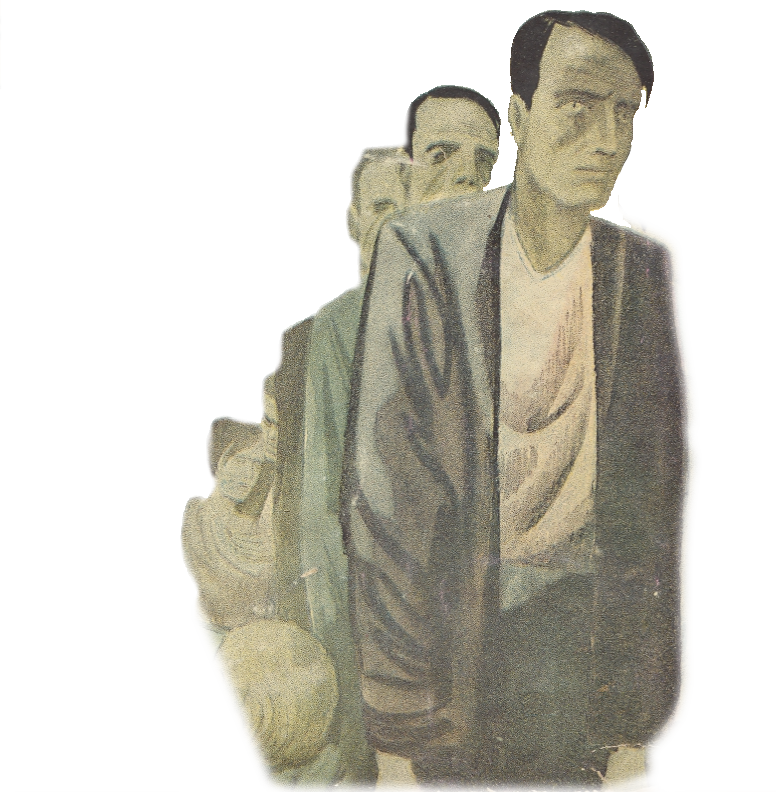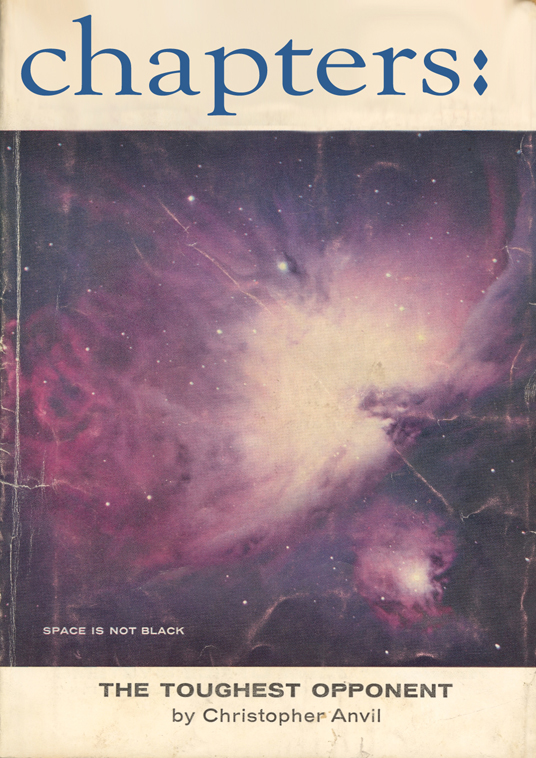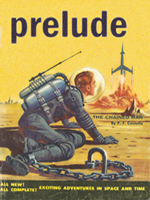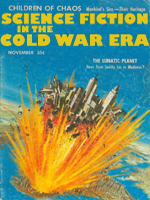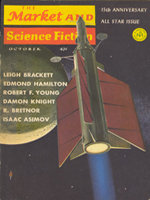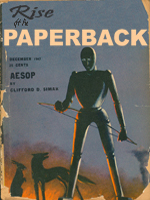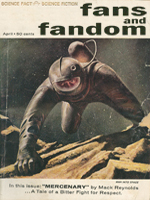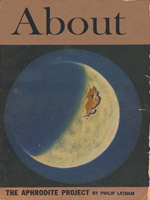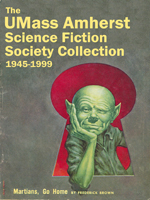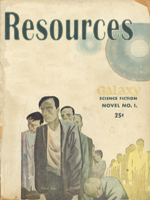Primary Sources
Secondary Sources
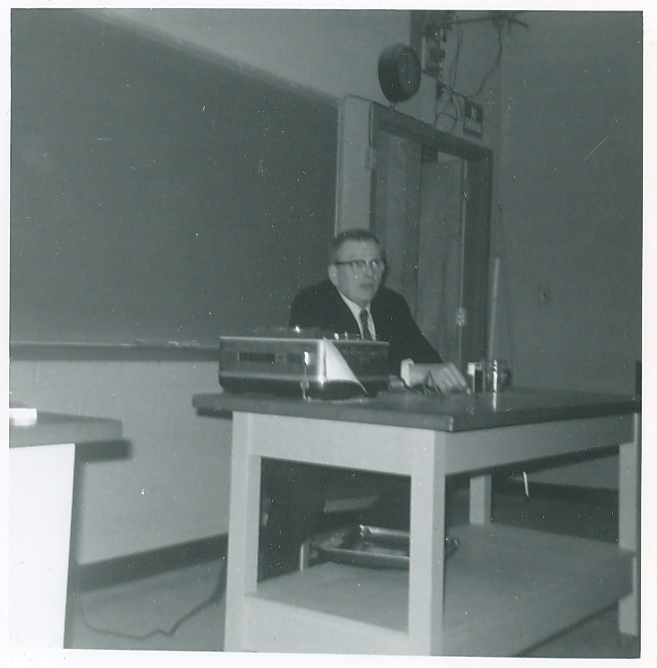
Legendary science fiction editor John W. Campbell spoke on the UMass campus in May 1966.
Photograph courtesy of UMSFS.
Photograph courtesy of UMSFS.
- Ashley, Mike. The Time Machines: The Story of the Science Fiction Pulp Magazines from the beginning to 1950. Liverpool: Liverpool University Press, 2000.
- Ashley, Mike. Transformations: The Story of the Science Fiction Magazine from 1950 to 1970. Liverpool: Liverpool University Press, 2005.
- Booker, Keith M. Monsters, Mushroom Clouds, and the Cold War: American Science Fiction and Roots of Postmodernism, 1946-1964. Westport, Connecticut: Greenwood Press, 2001.
- Boyer, Paul. By the Bomb's Early Light: American Thought and Culture at the Dawn of the Atomic Age. New York: Pantheon Books, 1985.
- Davis, Kenneth C. Two-Bit Culture: The Paperbacking of America. Boston: Houghton Mifflin Company, 1984.
- Del Rey, Lester. The World of Science Fiction, 1926-1976: The History of a Subculture. New York: Ballantine Books, 1979.
- Disch, Thomas M. The Dreams Our Stuff is Made Of: How Science Fiction Conquered the World. New York: The Free Press, 1998.
- Healy, Raymond J., and J. Francis McComas, eds. Adventures in Time and Space: An Anthology of Science Fiction Stories. New York: Random House, 1946.
- Heinlein, Robert A. The Puppet Masters. New York: Baen Publishing Enterprises, 2009 (original publishing date 1951).
- May, Elaine Tyler. Homeward Bound: American Families in the Cold War Era. Basic Books, 1999.
- Owens, Larry. "Sci-Fi and the Mobilization of Youth in the Cold War." Quest: The Spaceflight Quarterly 14, No. 3 (2007): 52-57.
- Pringle, David. Science Fiction: The 100 Best Novels, An English-Language Selection, 1949-1984. New York: Carroll and Graf Publishers, 1985.
- Radway, Janice A. A Feeling for Books: The Book-of-the-Month Club, Literary Taste, and Middle- class Desire. Chapel Hill: The University of North Carolina Press, 1997.
- Sanders, Joe, ed. Science Fiction Fandom. Westport, Connecticut: Greenwood Press, 1994.
- Seed, David. American Science Fiction and the Cold War: Literature and Film. Chicago: Fitzroy Dearborn Publishers, 1999.
- Tymn, Marshall, ed. Science Fiction: A Teacher's Guide and Resource Book. Mercer Island, Washington: Starmont House, Inc., 1988.
- Westfahl, Gary, ed., George Slusser and Eric S. Rabkin. Science Fiction and Market Realities. Athens: The University of Georgia Press, 1996.
- Westfahl, Gary. Science Fiction, Children's Literature, and Popular Culture: Coming of Age in a Fantasyland. Westport, connecticut: Greenwood Press, 2000.
- Whitfield, Stephen J. The Culture of the Cold War. Baltimore: The Johns Hopkins University Press, 1991.
Suggested Reading
- Halberstam, David. The Fifties. New York: Villard Books, 1993.
- McCurdy, Howard E. Space and the American Imagination. Washington, D.C.: Smithsonian Institution Press, 1997.
- Parrinder, Patrick, ed. Science Fiction: A Critical Guide. New York: Longman, 1979.
- Roberts, Adam. The History of Science Fiction. New York: Palgrave MacMillan, 2006.
- Rosheim, David L. Galaxy Magazine: The Dark and Light Years. Chicago: Advent Publishers, 1986.
- Tulloch, John and Henry Jenkins. Science Fiction Audiences: Watching Doctor Who and Star Trek. New York: Routledge, 1995.
- Warner, Harry Jr. All Our Yesterdays: An Informal History of Science Fiction Fandom in the Forties. Chicago: Advent Publishers, 1969.
- Westfahl, Gary. The Mechanics of Wonder: The Creation of the Idea in Science Fiction. Liverpool: Liverpool University Press, 1998.
- Westfahl, Gary. Cosmic Engineers: A Study of Hard Science Fiction. Westport, Connecticut: Greenwood Press, 1996.
